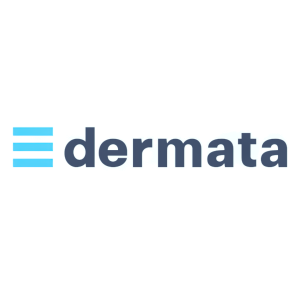Dermata (DRMA) terminates Villani deal, drops licensed skin drug path
Rhea-AI Filing Summary
Dermata Therapeutics, Inc. announced that it has elected to terminate its License Agreement with Villani, Inc., with the termination becoming effective 90 days after Villani receives the notice. This move is tied to Dermata’s recent strategic shift toward commercializing over-the-counter skin care treatments and its withdrawal of the XYNGARI™ investigational new drug application with the U.S. Food and Drug Administration.
Under the original agreement, Villani had granted Dermata an exclusive, sub-licensable, royalty-bearing license to develop and sell sponge-based pharmaceutical products for skin diseases and conditions. Dermata had agreed to pay up to $40.5 million in future development and sales milestone payments, plus single-digit royalties on net sales. After the termination date, Villani will not receive further milestone or other payments, Dermata’s development and commercialization obligations for licensed products will end, and the Villani licenses will cease to be in effect.
Positive
- None.
Negative
- None.
Insights
Dermata exits a licensed drug program, cutting future obligations but losing related rights.
Dermata Therapeutics is terminating its Villani license that covered sponge-based pharmaceutical products for skin diseases. The decision is explicitly linked to a strategic shift toward over-the-counter skin care products and the withdrawal of the XYNGARI™ investigational new drug application with the U.S. Food and Drug Administration. This effectively marks an exit from at least one prior prescription drug development path.
The Villani agreement included up to
Overall, this is a strategic refocus rather than a clearly positive or negative change on its own. The actual impact will depend on how successfully Dermata can build its over-the-counter skin care business now that the Villani-licensed pharmaceutical program and related obligations will fall away after the termination date.
FAQ
What did Dermata Therapeutics (DRMA) announce about its agreement with Villani?
Dermata Therapeutics announced that it has elected to terminate its License Agreement with Villani, Inc., a material definitive agreement covering sponge-based pharmaceutical products for skin diseases. The termination will become effective 90 days after Villani receives Dermata’s notice of termination.
Why is Dermata Therapeutics (DRMA) terminating the Villani license?
The company’s decision to terminate the Villani License Agreement was made in connection with its recent strategic shift to commercialize over-the-counter skin care treatments and its withdrawal of the XYNGARI™ investigational new drug application with the U.S. Food and Drug Administration.
What financial commitments under the Villani agreement are affected for Dermata (DRMA)?
Under the agreement, Dermata had agreed to make future milestone payments to Villani in an aggregate amount of up to $40.5 million, payable in cash or equity at Villani’s option, plus single-digit royalty payments on net sales. As a result of the termination, Villani will not be entitled to receive any further milestones or other payments due after the termination date.
What rights did the Villani license grant to Dermata Therapeutics (DRMA)?
The agreement granted Dermata an exclusive, sub-licensable, royalty-bearing license to use Villani’s licensed patents and know-how to formulate, develop, seek regulatory approval for, make, or sell pharmaceutical products containing sponge for treating diseases, disorders, and conditions of the skin. These licenses will cease to be in effect as of the termination date.
What happens to Dermata’s obligations for licensed products after the Villani agreement terminates?
After the termination date, Dermata will no longer have development or commercialization obligations related to licensed products under the Villani agreement, and Villani will not receive additional milestone or other payments that would have been due after that date.
How is Dermata Therapeutics (DRMA) changing its overall strategy?
Dermata is shifting its strategy toward commercializing over-the-counter skin care treatments, and in connection with this shift it has withdrawn its XYNGARI™ investigational new drug application with the U.S. Food and Drug Administration and is terminating the Villani License Agreement.









